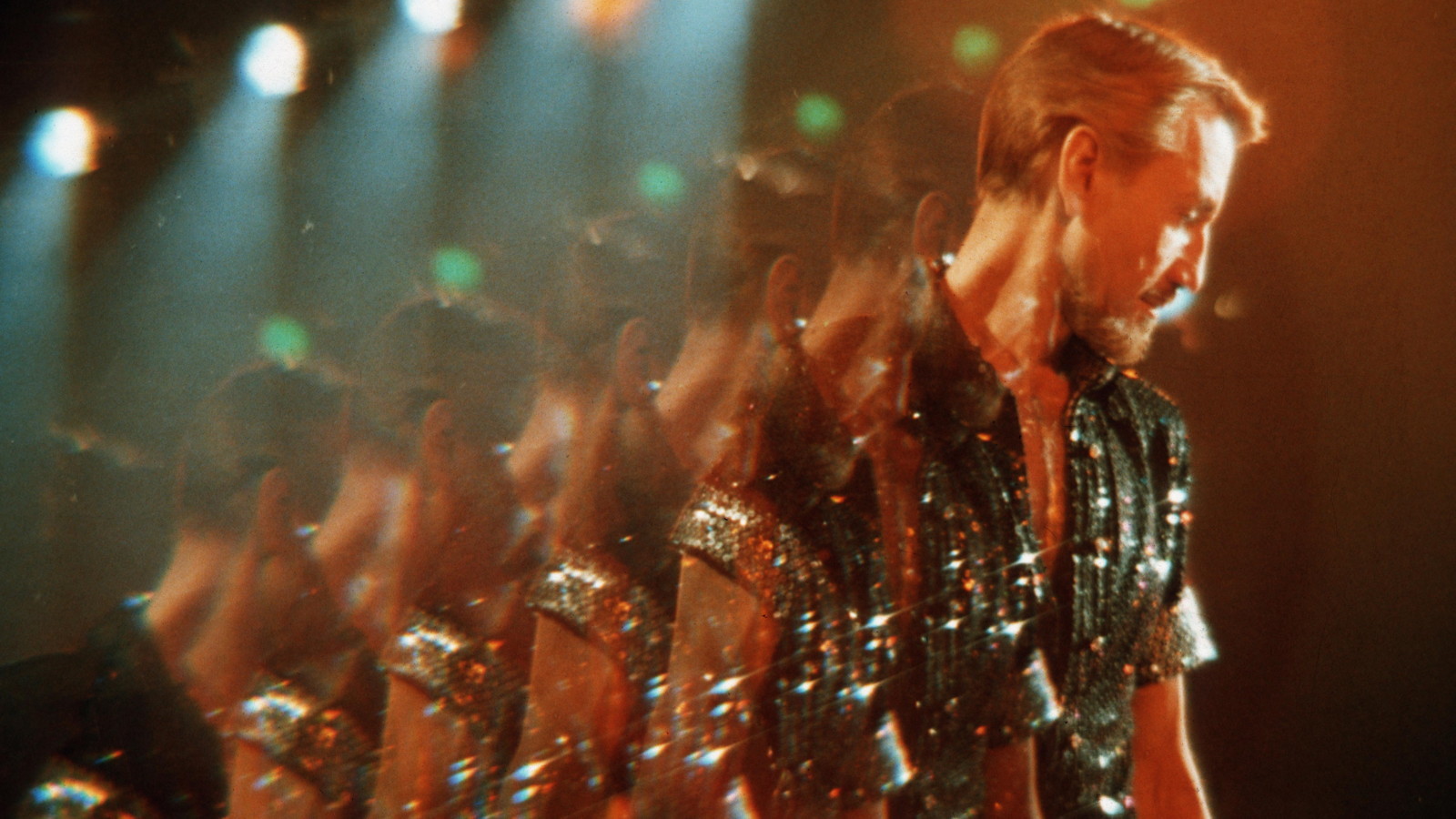Soundtracking: "All That Jazz"
 Wednesday, February 21, 2018 at 10:00AM
Wednesday, February 21, 2018 at 10:00AM by Chris Feil

These days we don’t get many musicals brave enough to buck genre comforts and form as Bob Fosse’s autobiographical All That Jazz. The director/choreographer transplants himself onto Joe Gideon (Roy Scheider), a highly regarded and sexually cruel master of the stage on his way to untimely demise. It’s a masterpiece to shame other masterpieces.
There’s a reason that the film isn’t remembered for its songs - musical pleasantry is low on his priorities, as the film is an uncompromising character study of the visionary creator’s weakest impulses...
The soundscape almost mocks Gideon, with the repetition that defines nearly every number reflecting Gideon’s monotonous spiral to an early grave. Yes, it opens with the warm rhythm of “On Broadway” and an audition sequence that plays into the Broadway dream, but it quickly knocks the rose-colored glasses off our face.
Decades ago Oscar had a separate category for adaptation scores, and its winners were mostly musicals born on the stage and transposed to cinema. It’s fitting that All That Jazz would be one of the winners to go against that tradition, considering how the film goes against the conventional musical form. The song riffs on various musical eras from classical music, to vaudeville and standards, all the way up the decades to what was contemporary pop/R&B, just beginning to make its claim on Broadway. Call it a jukebox musical of the history of the American stage.
In fact, All That Jazz came along as the boundaries of the commercial landscape on the New York stage were being expanded by the likes of Sondheim and Fosse himself. This film however is even more experimental than the stage would have accepted at the time, applying the influence of Fellini and American documentary to the aesthetics. Musically, Fosse is unencumbered by the demands of the hummable showtune. It would be brave by even today’s musical standards. The emphasis of each number is the psychosis underneath the orchestration; it’s a musical without a safety net.
The closest All That Jazz allows for the creature comforts of the genre is obviously in Fosse’s choreography. And when it comes along as an indulgence, like Leland Palmer’s unpacking of Joe’s faults or a lovely moment between father and daughter, dance becomes dialogue.
That spirit of creative innovation ahead of its time sometimes acknowledges itself. The very sweaty and provocative "Airotica" number begins as a tongue-in-cheek tourism number but evolves into a musing on sexual exploration without specific destination. The song itself is intentionally blandly conventional, giving way to something more challenging to interpret. Ample nudity, sexual fluidity, choreography thats as graceful as it is intellectually stimulating. Showgirls wishes.
The sequence is shocking for its time (and ours) both in its abstract expression and its overt sexuality. And yet this moment still pales to the kind of provocation Fosse is doing with the rulebook elsewhere.
But the way that Fosse does alter existing music, sometimes stripping it of its catchiness and accessibility, gives way to something deeply personal. The stuntedness of this musical landscape compliment both the damage Gideon leaves in his wake and his own creative frustrations that only fleetingly satisfy him. Even in the flashy decadence of his final “Bye Bye Love Life” number, the weeping praise and energetic design reveals his ego. The creation in his mind is perfect not only for its ability to entertain, but because he is adored. The final monotonous musical sound is the death knell of his heart monitor before Ethel Merman ironically intervenes.
While the line’s between imagination and reality are far more blurry for All That Jazz, its fantasy musical headspace would be the antecedent to musicals like Chicago that reveal their songs as fully imagined. But if this film is about creation bringing death, then Bob Fosse kills several musical conventions along with his stand-in Joe Gideon. Rarely are musicals as personal or abstractly ambitious.
All Soundtracking installments can be found here!



Reader Comments (12)
What a Great article and analysis! Thank you -- I enjoyed this article tremendously!! Bravo!! :-)
Agreed! Very well done. I love this movie and everything about it (music choices included) more than I can begin to express!
Damn, this is a great post.
LOVE this! :) (And the film, of course)
Definitely one of the best musicals.... EVER!!!!!!
Great post. But I have to disagree with one aspect -- the musical numbers may have been groundbreaking for a movie musical, but, as you said, the movie is autobiographical and the numbers had their counterparts in ones that Fosse had already produced on stage, even the Airotica number. (I'll have to dig my copy of Fosse's biography out of my library to see which was which.)
My #1 movie of all time.
LOVE THIS MOVIE. And thanks for this post. Except All That Jazz came after the original stage production of Chicago, so its musical numbers can't be Chicago's antecedents. If you're referring to the film version of Chicago, then sure.
Love this article and this film. Truly nothing like it. Maybe the most original, exposing and wrenching biopics of all time. Superb superb superb.
"Decades ago", when i watched my first oscars, I saw this cleaning up in the tech categories and had to know more [I vaguely recall the show had a lot more clips from the nominees in those days]. i'm still planning on playing 'bye bye life' at my funeral [and if you don't know the fosse choreography you're not invited]
This movie is such an underrated masterpiece. Provocative, fascinating, innovative. One of the movie musicals that used the film medium perfectly. Wish Fosse had made more films...
Jessica. Lange.Sigh.